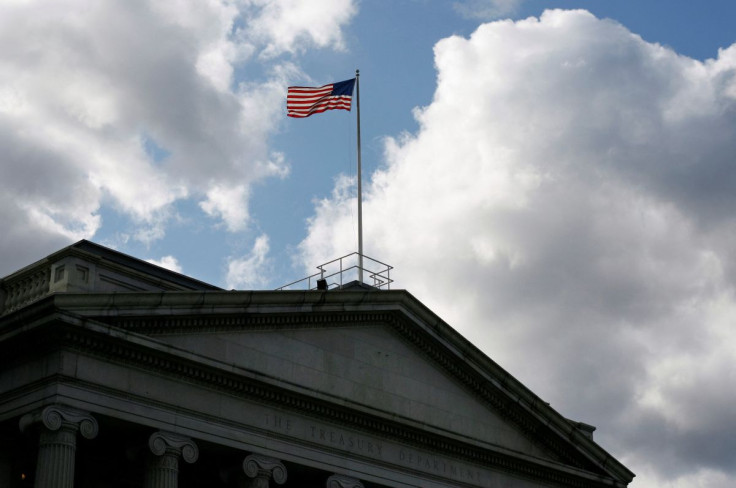U.S. Treasury Officials Say Overall Economic Strength Belies Weak GDP

U.S. Treasury officials said on Monday overall income and jobs figures suggested the economy was in good health and not in a recession, even if data due this week shows gross domestic product falling for a second consecutive quarter.
The U.S. Commerce Department is scheduled to report second quarter GDP on Thursday, and economists polled by Reuters forecast a gain of just 0.5%, with 28% of the 78 respondents predicting a contraction.
After a 1.6% annualized drop in first-quarter GDP, a negative second quarter result would likely prompt critics of President Joe Biden to declare a U.S. recession under a traditional shorthand measure used by economists, journalists and analysts -- two consecutive quarters of decline.
But Ben Harris, Treasury assistant secretary for economic policy and Neil Mehrotra, deputy assistant secretary for macroeconomics, wrote that gross domestic income (GDI), which measures aggregate income -- wages, business profits, rental and interest income -- continued to rise in the first quarter at a 1.8% annual pace, while GDP fell.
They said while second quarter GDI data will not be available until the end of August, some GDI components, including employee compensation, proprietors income and rental income, show increases for the quarter. Tax receipts also suggest strong corporate income growth, the officials added.
"To get an accurate real-time read on the economy, economists need to look across several measures of economic activity to infer the true pace of growth," they wrote, adding that GDI has recovered significantly faster than GDP over the pandemic period.
"On the whole, our view is that the data strongly suggest we are not currently in a recession, and that this year's first quarter growth was likely favorable when looking at income, employment, and overall production," they added.
While first quarter GDP, which only counts final goods, was negative, they said a 2% increase in real gross output for the period was the result of the economy producing more "stuff," but more of this went into intermediate goods not counted in GDP.
Their comments came a day after U.S. Treasury Secretary Janet Yellen said a second quarter GDP contraction would not signal recession because of underlying job market strength, demand and other indicators of economic health.
"Recession is broad-based weakness in the economy. We're not seeing that now," she said.
Defining recessions is not a straightforward business. The private research group considered the official arbiter of U.S. recessions also looks at a broad range of indicators, including jobs, industrial production, spending and incomes. A recession has never been declared without a loss of employment, and U.S. hiring in particular remains strong.
© Copyright Thomson Reuters {{Year}}. All rights reserved.





















